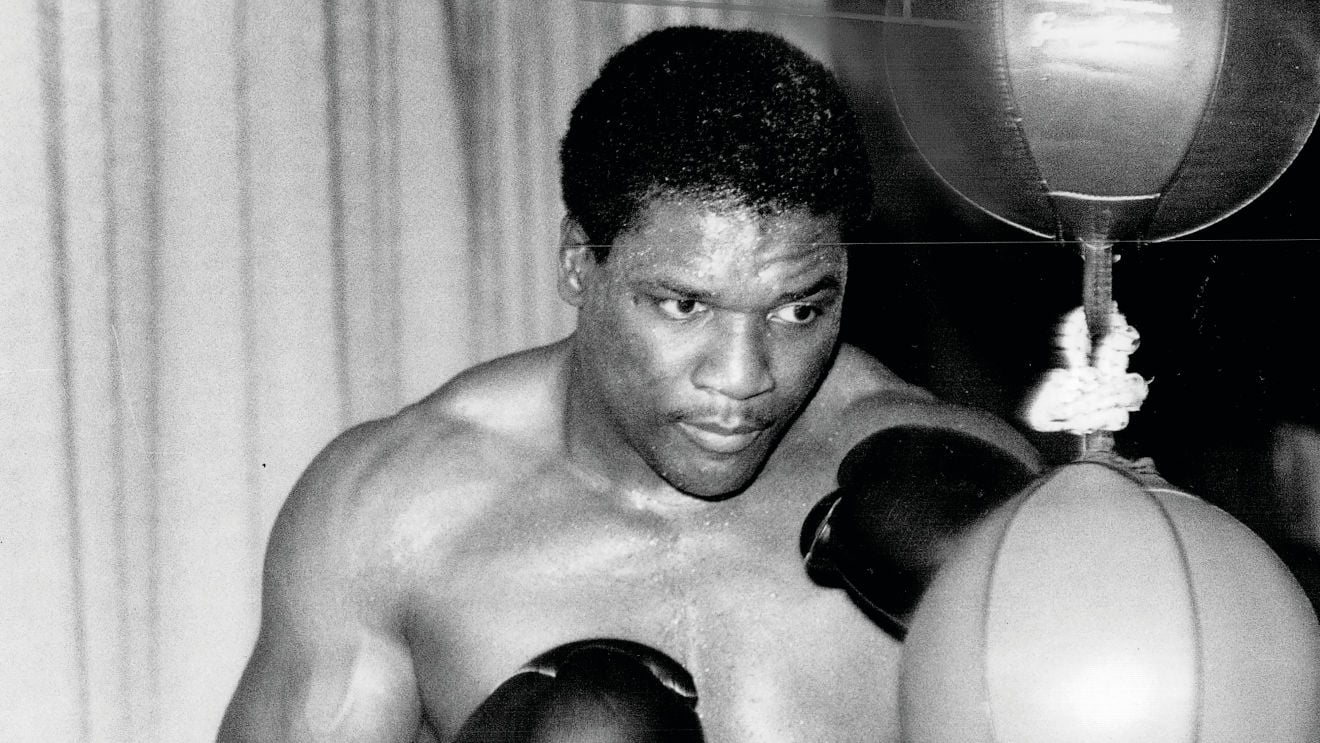Nineteen years after Muhammad Ali’s last match, Carlos Acevedo recounts the story of Trevor Berbick. Berbick held the WBC heavyweight champion title briefly in 1986 and left behind a unique legacy in boxing history. He was the last man Ali fought in the ring, in a disorganized promotion held in the Bahamas. Berbick was also the first victim of Mike Tyson in a title fight, suffering a memorable knockout that became popular on YouTube. His reputation was further tarnished by a chaotic brawl in a parking lot with comeback ex-champion Larry Holmes, which was widely covered on sports newscasts across America. Tragically, Berbick was later brutally murdered in Jamaica after years of scandalous headlines. These dark moments were not surprising, considering that Berbick was part of the “Lost Generation” of heavyweights, a group of unmotivated and overweight fighters who fell into drug and alcohol abuse and unhealthy lifestyles.
Unlike his counterparts, Berbick was known for his discipline and rarely entered the ring out of shape. His challenges in the ring were unrelated to issues like overeating, womanizing, or substance abuse. In fact, Berbick would return home after training sessions to read his worn-out bible, sing hymns spontaneously, and spend most Sundays preaching energetically at church. He had earned the nickname “The Fighting Preacher” long before George Foreman’s miraculous comeback in the late 1980s. Berbick even became an ordained minister at the Moments of Miracles Tabernacle in Nevada. From the beginning, it was clear that his performances depended on his psychological state before each fight.
Berbick was born in Port Antonio, Jamaica, in either 1952 or 1954. He spent five years working as immigrant labor in Guantanamo Bay, which at that time was primarily a military base. It was during his work as a maître d’ at a rowdy mess hall that he discovered his passion for boxing. Berbick witnessed the chaos and violence among the soldiers stationed there during the Vietnam War and learned some martial arts skills from Special Forces. Encouraged by his success in fights against marines, Berbick decided to pursue a career in boxing and eventually represented Jamaica in the Montreal Olympics, although he didn’t throw a single punch in the competition.
After his Olympic exit, Berbick settled in Halifax, Nova Scotia, a city where boxing was overshadowed by popular sports like hockey and curling. With only a dozen amateur fights under his belt, he turned professional in 1976 and quickly built up an 11-0 record before facing Colombian fighter Bernardo Mercado. Although Mercado had been defeated in previous matches against notable opponents, his powerful right hand was a serious threat. In a fight that drew more than 10,000 fans, Berbick was knocked out in the first round, leaving his future as a professional boxer uncertain. However, he continued to fight against less skilled opponents across Canada, eventually amassing a 14-1-1 record.
Berbick’s career took an unexpected turn when he was cast as an opponent for John Tate, a heavyweight boxer seeking a comeback after losing his title to Mike Weaver. Berbick surprised everyone by defeating Tate with a knockout in the ninth round. This upset win earned him a shot at Larry Holmes, the dominant heavyweight of the early 1980s. Although Berbick became the first title challenger to last the distance against Holmes, he didn’t receive much credit for the loss. Berbick’s next high-profile match was against the ailing Muhammad Ali, who was clearly unfit to continue his boxing career. The fight, held in the Bahamas, turned into a debacle, but Berbick managed to outpoint Ali and gain recognition for his victory.
Despite moments of success, Berbick’s career fluctuated, with wins and losses against various opponents. He had a reputation as a spoiler and scored upsets against David Bey and undefeated Mitch “Blood” Green in 1985. These victories qualified him for a shot at the undefeated WBC titleholder Pinklon Thomas. Thomas, unfortunately, was distracted by extracurricular pursuits, including managing, training, and pursuing a career as an R&B singer. Unfocused and unprepared, Thomas lost to Berbick by a decision in a grueling fight.
Source link
